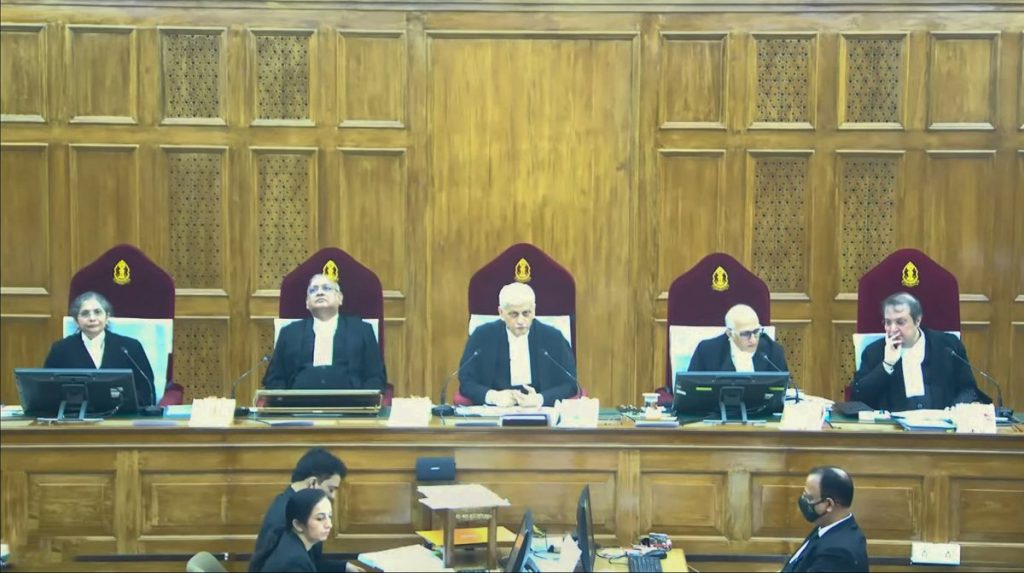NewsGate Press Network
In a landmark judgement on Monday the 7th of November 2022, which incidentally was the last working day of Chief Justice UU Lalit, the Supreme Court of India upheld by a 3:2 majority, the 103rd amendment to the Constitution introducing a 10 per cent reservation for the Economically Weaker Sections (EWS) in admissions to educational institutions and government jobs.
While Justices Dinesh Maheshwari, Bela M Trivedi and J B Pardiwala agreed that the amendment does not violate the basic structure of the Constitution, Chief Justice of India U U Lalit and Justice S Ravindra Bhat dissented.
In his judgement, Justice Maheshwari stated that the reservation is an instrument of affirmative action by the state to ensure an all-inclusive march towards the goal of an egalitarian society while countering inequalities. “It is an instrument not only for inclusion of socially and educationally backward classes to the mainstream of society, but also for the inclusion of any class or section so disadvantaged as to be answering the definition of a weaker section. In this background, reservation singularly on economic background does not violate any essential feature of the Constitution and does not cause any damage to the basic structure of the constitution,” he said.
Justice Trivedi concurred with Justice Maheshwari and said that EWS quota was an essential feature of the Constitution.
“The amendment as a separate class is a reasonable classification. Legislature understands the needs of people and it is aware of the economic exclusion of people from reservation.
“It cannot be said that the age old caste system in India led to introduction of reservations and so that SC.ST get level playing field. At end of 75 years we need to take a re-look at reservations in general in spirit of transformative constitutionalism,” Justice Trivedi ruled.
Justice J B Pardiwala said that reservation was not an end but a means to secure social and economic justice.
“It must not be allowed to become vested interest. Reservation should not continue for indefinite period of time so as to become vested interested,” he said.
Dissenting, Justice Bhat said: “The amendment practices constitutionally prohibited discrimination. Strikes at the heart of the equality code. Allowing breach of the 50 per cent cap set on reservation can lead to further infractions which can result in compartmentalization.”


Comments are closed for this post.